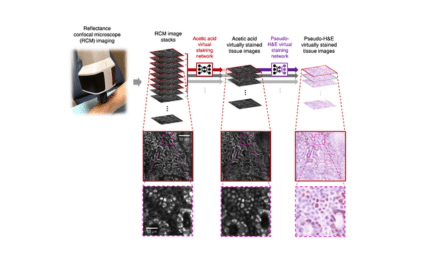A study led by researchers at Fred Hutchinson Cancer Research Center has identified two proteins in the blood that could become important prognostic markers for long-term survival in breast cancer patients.
The proteins are associated with chronic inflammation, which is known to contribute to cancer development and progression.
Cornelia Ulrich, PhD, and colleagues measured the levels of C-reactive protein (CRP) and serum amyloid A (SAA) in 734 breast cancer patients at 31 months after diagnosis. They found that elevated levels of CRP and SAA are associated with reduced overall survival, regardless of patient age, tumor stage, race and body mass index.
For example, women with breast cancer who had SAA levels that were in the highest third in amount measured in their blood were three times more likely to die from their disease within the following seven years compared to patients with the lowest-third amount. Similarly, women in the highest third of CRP levels had a two-fold increased risk of death.
“These associations are strong and they suggest that, in the long-term, elevated levels of inflammatory markers predict a woman’s chances of surviving after breast cancer,” said Ulrich, a member in the Hutchinson Center’s Cancer Prevention Program. “It also appears that there may be a threshold effect in that only women in the highest third of inflammation markers had increased mortality.”
The study appears in the May 18 edition of the Journal of Clinical Oncology.
“To our knowledge, this is the largest population-based cohort study to date that examined the relationship between systemic inflammation and breast cancer survival, and the first to evaluate SAA as a prognostic marker for breast cancer,” said Ulrich.
CRP and SAA are nonspecific, acute-phase hepatic proteins that are secreted into the circulating blood stream in response to cytokines including interleukin-1, interleukin-6 and tumor necrosis factor.
Patient data was drawn from the Health, Eating, Activity and Lifestyle (HEAL) study, a multi-ethnic NIH-funded prospective group of women diagnosed with stage 0 through Stage IIIa breast cancer.
In previous studies, elevated CRP was associated with poor survival in patients with metastatic prostate cancer as well as those with gastroesophogeal, colorectal, inoperable small-cell lung and pancreatic cancers. Preoperative levels of SAA have been associated with survival of patients with gastric cancer and those with renal cell carcinoma.
Likewise, clinical and experimental data suggest that chronic inflammation promotes mammary tumor development. Breast cancer patients have elevated concentrations of CRP before surgery, more so in women with advanced disease, which suggests that CRP may be related to tumor burden or progression.
Cancer survivors with chronic inflammation may have an elevated risk of recurrence as a result of the effects of inflammatory processes on cell growth or the presence of cancer cells that induce inflammation, according to the study.
“It is interesting that markers measured in the blood nearly three years after diagnosis predicted prognosis,” Ulrich said. “We also found these associations to hold up after adjusting for a number of factors that associate with systemic inflammation, such as obesity. However, more research is needed to confirm these findings and to get more precise estimates of risk. We also need to learn more about the biologic mechanisms.”
Ulrich was joined in this study by researchers from the University of Washington, the National Cancer Institute, City of Hope National Medical Center, University of Southern California and the University of Louisville.
Funding for the study was provided by the National Cancer Institute, National Institutes of Health, National Institute of Child Health and Human Development, University of New Mexico, University of Chicago and the California Department of Health.



